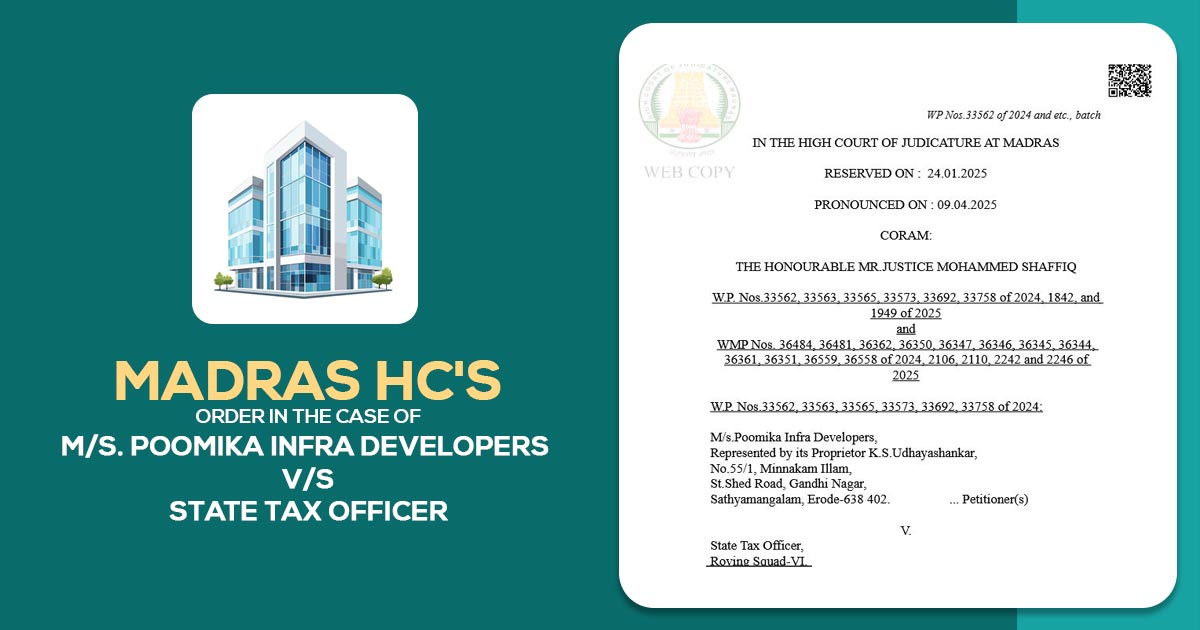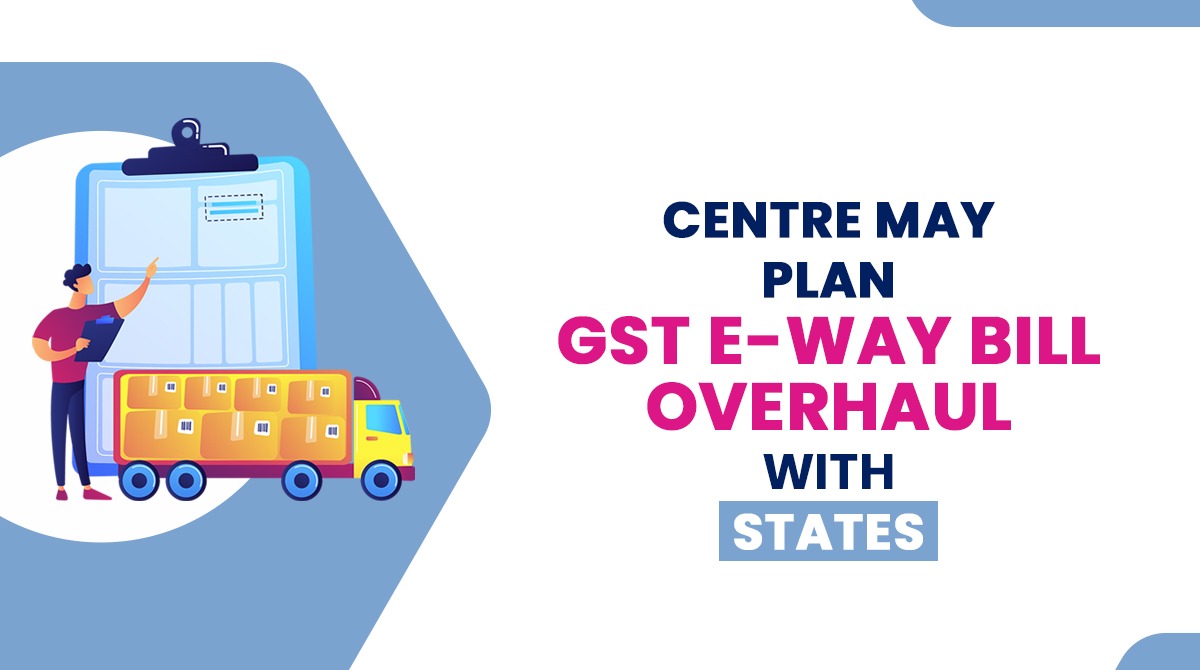
The Madras High Court held that, according to Section 169 of the GST Act, service of notices and orders through the Common Web Portal is a valid mode of service.
The claim that the GST portal is not specified as a “designated computer resource of the assessee” has been rejected by the bench. Therefore, under Sec 13 (2) (a) (ii) of the Information Technology Act, receipt arises solely when the communication is retrieved.
“Service by making it available in the common portal is a valid mode of service in terms of Section 169 of the GST Act. Service is complete when it enters the common portal i.e., when it is made available in the common portal,” the bench of Justice Mohammed Shaffiq mentioned.
Bench, the common portal, is a specified computer resource for both the department and the taxable person to the extent that the taxable person is furnished a unique login ID and password to enable them to access the web portal. Therefore, for the taxable person, the common portal shall comprise a “designated computer resource.”
Concerning the case, the applicant was in the business of furnishing work contract services to the central and state governments.
Short tax payments for 2017-18 to 2022-23 have been noticed in the inspection. For the period 2018-19, an intimation in Form DRC-01A was furnished, which was uploaded in the GST common portal.
It arrived from an SCN in DRC-0,1, which was uploaded in the common portal for the 2021-22 period. The allegations raised in DRC-01A are similar to DRC-01. Hence, for 2021-22, the impugned order has been passed.
The taxpayers were not aware that the intimation in DRC-01A, the show cause notice in DRC-01, and the order of adjudication in DRC-07 were uploaded in the GST Common Portal, which is the case of the taxpayer.
Hence taxpayer is not able to take part in the adjudication/ assessment proceedings. On the premise that the service of notice/order is inappropriate and not valid, the taxpayer contested the assessment order.
Taxpayer, the proper office shall serve a notice under Sections 73 and 74 of the CGST Act before the determination of tax. When the service is received by the intended entity, then it is said to be completed. In the common portal, making available cannot be ministered as a service of notice/order, but it may comprise the issuance of notice/order under the GST Act.
The department on Rule 142(1) of GST Rules, placed reliance to furnish that the considered is merely the issuance of the SCN summary in Form DRC-01 and not the detailed notice that need to be issued otherwise, therefore the detailed service notice via making it available in the common portal is invalid, and is opposite to the said provisions of section 169 of the Act.
Bench, if other than the specified computer resource, the electronic record is sent to a computer resource, then the receipt appears when the electronic record is retrieved via the addressee. If a computer resource is not designated by the taxable person, then the receipt arises when the electronic record enters the computer resource of the addressee.
The bench stated that the common portal is considered a “designated computer resource” of the taxable person. Therefore, a receipt occurs when it is made available in the common portal, as outlined in clause (a) of subsection (2) of section 13 of the Act.
Read Also: Madras HC Quashes Order Over GST Return Mismatch; Orders Rehearing After 10% Tax Deposit
Taxpayer, the court in the identical cases has remanded the case, subject to a 25% disputed tax payment. Therefore, the bench set aside the impugned order and asked the taxpayer to file the objections within 4 weeks.
| Case Title | M/s. Poomika Infra Developers vs. State Tax Officer |
| Case No. | W.P. No 33562 of 2024 |
| Counsel For Petitioner | Mr G Natarajan, Mr S Senthilnathan Mr K Chandrasekaran |
| Counsel For Respondent | Mr Hajanazarudeen, Mr V Prashanth Kiran, Mr G Nanmaran |
| Madras High Court | Read Order |









